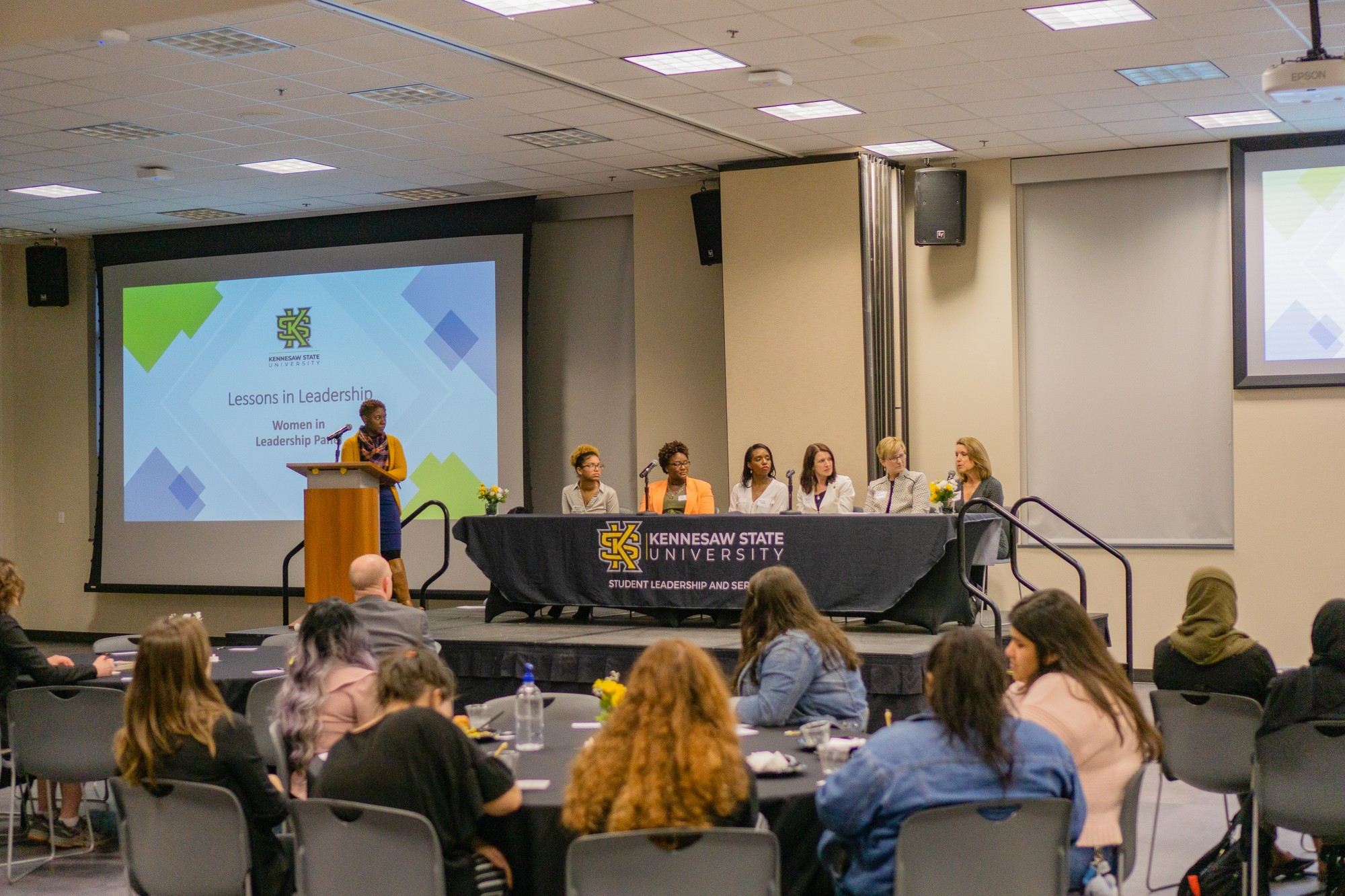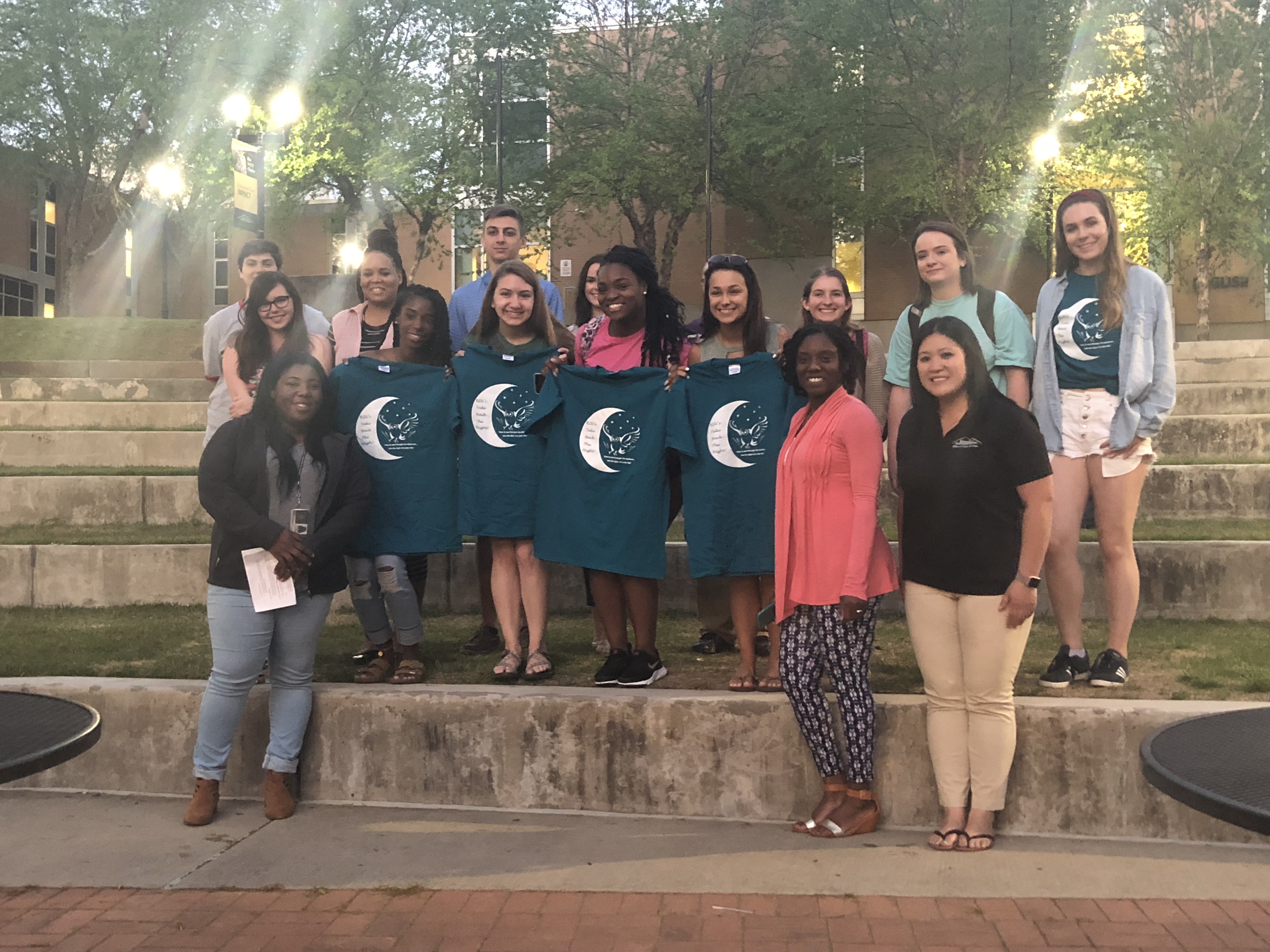This article has been updated since its initial publication.
Lectra Lawhorne’s resignation from her position as Kennesaw State’s Chief Information Officer was announced Friday, March 9, after she was placed on administrative leave Feb. 2.
The announcement came in an email Friday to faculty and staff from KSU Interim President Ken Harmon. He announced that Jeff Delaney, who has been serving as acting CIO, will take over as interim CIO. According to an article by The Atlanta Journal-Constitution, Lawhorne’s attorney Clifford Weiss said she resigned due to serious health issues and that the university nor her client did anything wrong.
“I have asked KSU Office of Human Resources to begin the search process for a new CIO immediately,” the email said.
According to the redacted documents given to The Sentinel by the university, Lawhorne’s resignation letter was sent to Harmon on March 2 and will go into effect April 30. Information as to the reasoning for her resignation was redacted from her letter.
In a letter from the university’s internal audit department, KSU received a complaint on Jan. 16 regarding a timekeeping issue as well as a negative work environment within University Information Technology Services.
It outlined that an unnamed executive director had an issue that prevented them from leading staff meetings and caused them to miss work for six to eight weeks during the university’s transition to Office 365, a project outlined as “significant” in the audit.
“Our investigation found that Ms. Lawhorne was aware that the ED had an (redacted information) problem. On some occasions, when the ED was (redacted information), Ms. Lawhorne allowed the ED to remain in the office,” the audit said. “On other occasions, the ED was absent from work — including the month of March 2017 — and Ms. Lawhorne failed to ensure that the ED’s time off was properly recorded.”
The audit also said Lawhorne knew the executive director had been convicted of a DUI and did not comply with university policy by failing to report it to the Division of Human Resources. The letter states that the DUI contributed to the executive director’s time away from work, and, in that time, Lawhorne assigned their duties to other employees. The executive director conducted community service as a result of the DUI.
“It appears as though the ED’s issues (redacted information) were clear and apparent to most UITS employees, including Ms. Lawhorne,” the letter states.
The internal audit department interviewed Lawhorne twice over the course of their investigation. According to the letter, Lawhorne said timecard approval authority was delegated to her executive assistant and that the executive director should work with the assistant to properly record their time off. The assistant said she was told by Lawhorne that human resources would take care of the executive director’s timecard while they were on leave. Lawhorne denies that she said that to the assistant, according to the letter.
A UITS employee who handles human resource matters and two human resources employees at KSU said they were not asked by Lawhorne or the executive director to file Family Medical Leave Act paperwork or to record the executive director’s time off during March 2017. Lawhorne said she asked the executive director to record time off while out of the office.
The letter said Lawhorne’s two interviews contradicted each other, as well as statements by UITS employees, on matters of the executive director’s time off and the amount of time missed.
“As previously mentioned, there was no vacation, sick or medical leave time recorded for the ED for March 2017,” the letter said. “Additionally, the ED’s timecards are not reflective of the time spent away from the office performing community service.”
Building card access logs, emails indicating the executive director was on leave through March 24 and minutes from meetings pertaining to the O365 projects were some factors indicating the executive director missed significant time in March 2017.
According to a payroll reviewed by the internal audit department, the executive director was being paid a monthly stipend of $750 in addition to their normal salary to work on University System of Georgia projects between March and July 2017. UITS employees interviewed in the investigation said the executive director was not participating in USG projects at that time.
In the interviews, Lawhorne confirmed that timekeeping approval was her responsibility and that the executive director should not have been receiving the stipend during that time.
The audit also found that Lawhorne had a negative effect on her employees’ work environment due to the way she treated them. It said employees that noticed the behavior of the executive director did not bring it to the attention of those outside of UITS because they thought she was handling it or they feared retaliation from Lawhorne.
“For example, one employee shared an experience where the aforementioned ED and Ms. Lawhorne set him up to make a mistake in a meeting, and Ms. Lawhorne went on to berate this employee in front of everyone attending the meeting, which we confirmed with multiple employees who witnessed the incident,” the letter said. “Afterwards, the ED told the employee he was set up because Ms. Lawhorne wanted to ‘make an example out of him.’”
Employees interviewed during the investigation described being bullied, berated and yelled at by Lawhorne. They said they “spend 80% of [their] time trying to figure out how to not make Lectra angry.”
Another example given was when an employee was attending a funeral, and Lawhorne called them to revise an organizational chart. After reminding Lawhorne they were at a funeral, Lawhorne persisted, and the employee left the funeral to complete the task. When the employee returned to campus that following Monday, Lawhorne instructed the employee to redo the chart again, which, according to the letter, implies that the task did not need to be done that previous Friday.
“Based on the interviews conducted, it does not appear that Ms. Lawhorne treats her employees in a manner consistent with the USG’s core values,” the letter said. “Taken all together, these violations demonstrate a failure of effective and ethical leadership by Ms. Lawhorne.”
In a memo sent from Lawhorne to Harmon and Andrew Newton, KSU’s chief legal affairs officer, she denied having hired or attempted to hire a convicted felon, having knowledge that an employee was falsifying time records, contributing to a negative work environment and that an affair with a subordinate was occurring.
The executive director was on leave under the FMLA over the course of the university’s investigation, and, as a result, was not interviewed for the audit. The executive director and Lawhorne had worked together for approximately 20 years.
Editor’s note: Previous allegations from multiple anonymous sources regarding Lawhorne’s firing were incorrect. The corresponding story has been taken down.




